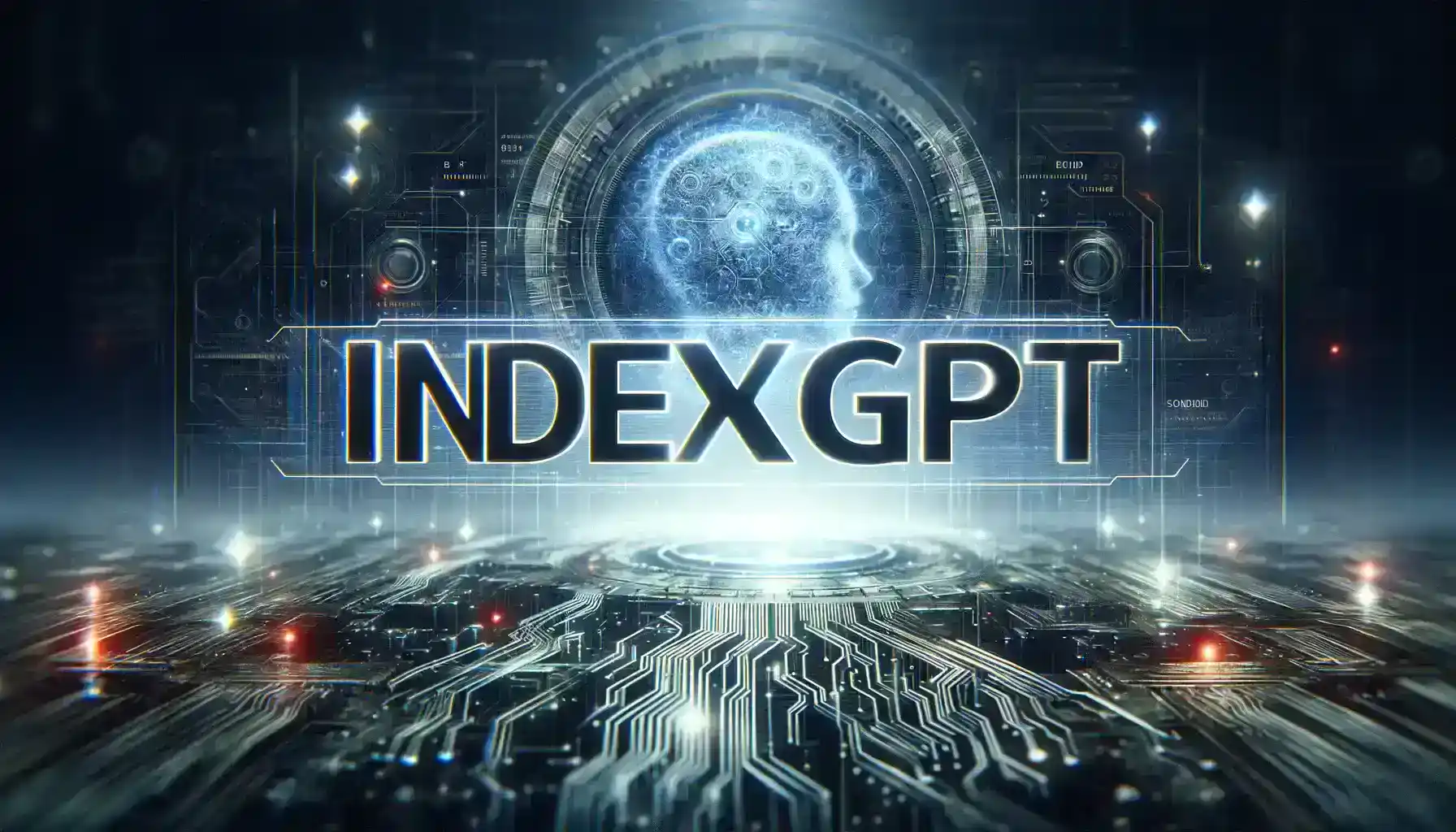Table of Contents
In the rapidly evolving landscape of financial technology (FinTech), integrating Artificial Intelligence (AI) has become a defining catalyst for innovation. Among the latest breakthroughs in AI technology, It has emerged as a formidable force, reshaping how FinTech companies operate and redefining the financial services they offer.
This article embarks on a journey into the profound impact of IndexGPT on the FinTech industry, where the confluence of cutting-edge AI and financial services is revolutionizing the way we transact, invest, and manage our finances.
As we delve into Index GPT and FinTech, we will uncover the real-world applications, benefits, and challenges that come with this disruptive force.
From enhancing customer support to predicting market trends, from automating compliance to personalizing financial services, IndexGPT is at the forefront of a FinTech revolution that promises increased efficiency, accuracy, and accessibility for consumers and businesses alike.
Join us on this exploration of IndexGPT’s transformative journey through the waves of AI disruption in the world of FinTech.
Understanding IndexGPT

IndexGPT is a remarkable variant of the GPT-3 (Generative Pre-trained Transformer 3) language model that has garnered significant attention in various industries, including finance. To truly appreciate its significance in the world of FinTech, it’s essential to delve into what makes IndexGPT so special.
At its core, IndexGPT is a state-of-the-art artificial intelligence model, built upon the foundation of GPT-3, which stands for Generative Pre-trained Transformer 3. This model is part of a family of language models known for their ability to understand and generate human-like text. What sets it apart is its specialization in handling complex and data-rich information, making it particularly well-suited for tasks involving financial data analysis.
Its training process involves exposure to an extensive and diverse dataset comprising text from various sources, including news articles, books, and websites. This training equips IndexGPT with a deep understanding of language, context, and the ability to generate coherent and contextually relevant responses.
IndexGPT in FinTech: Real-World Applications
Algorithmic Trading
Algorithmic trading is a critical component of modern finance, characterized by high-speed trading decisions made by algorithms. IndexGPT’s contribution to this field is profound. It possesses the capability to analyze extensive datasets, including market data, news, and historical trends.
This analysis enables traders to gain valuable insights that would be impossible to uncover manually. For instance, it can identify intricate patterns in stock prices and gauge market sentiment by analyzing news articles. These insights empower traders to make well-informed decisions swiftly, ultimately improving trading strategies and outcomes.
Risk Assessment and Credit Scoring
Lending institutions rely heavily on credit scoring models to evaluate the creditworthiness of borrowers. IndexGPT brings a new dimension to this process by leveraging its capacity to analyze an extensive array of data sources.
Beyond conventional credit data, it can incorporate unconventional sources such as social media activity, news articles, and economic indicators. This holistic approach allows for a more comprehensive assessment of an individual’s financial profile.
Consequently, lenders can make more accurate risk assessments, reducing the likelihood of approving loans to individuals who may default. This not only benefits the lending institutions by reducing their exposure to bad loans but also improves access to credit for deserving borrowers.
Customer Support and Chatbots
In today’s digital age, customer support is increasingly provided through chatbots. IndexGPT plays a pivotal role in enhancing the effectiveness of these chatbots. It equips them with the ability to comprehend and respond to customer queries in a natural and human-like manner.
This significantly improves the overall customer experience by providing quick, accurate, and context-aware responses. Customers benefit from more efficient support interactions, and businesses can streamline their customer service operations.
Fraud Detection
Detecting fraudulent transactions is an ongoing challenge for financial institutions. IndexGPT is a valuable asset in this regard. By analyzing transaction data and identifying suspicious patterns, it can effectively contribute to fraud detection efforts.
Furthermore, its adaptability enables it to stay ahead of evolving fraud tactics. This adaptability and vigilance make it an invaluable tool in the continuous battle against financial fraud, helping financial institutions safeguard their assets and protect their customers.
Companies Leveraging IndexGPT in FinTech

Capital One
As a renowned financial institution, Capital One has leveraged IndexGPT to revolutionize its customer support services. By incorporating IndexGPT-powered chatbots into its customer service infrastructure, Capital One has achieved significant improvements.
Customers now experience reduced wait times when seeking assistance, and the accuracy of responses has markedly increased. This not only enhances the overall customer experience but also boosts operational efficiency for Capital One.
Robinhood
The popular stock trading app Robinhood has embraced IndexGPT in the realm of algorithmic trading. This strategic move empowers Robinhood users with access to data-driven insights, thereby enabling them to make more informed investment decisions.
By utilizing IndexGPT’s capabilities, Robinhood levels the playing field for individual investors, providing them with tools and information typically accessible only to institutional investors.
Experian
It has integrated IndexGPT into its credit scoring models. This integration has resulted in more comprehensive credit assessments for individuals and businesses.
Experian can offer a more holistic view of creditworthiness by analyzing a wider range of data sources, including non-traditional indicators such as social media activity and news articles. This benefits lenders, who can make more informed lending decisions, and borrowers, who may receive more accurate credit assessments.
PayPal
PayPal, a leading online payments platform, has harnessed the capabilities of IndexGPT to streamline its dispute resolution process. It plays a crucial role in analyzing transaction details and customer communications, allowing PayPal to resolve disputes efficiently and fairly.
This not only enhances the trust and confidence of PayPal’s user base but also ensures a smooth and satisfactory experience for both buyers and sellers involved in transactions.
Challenges and Ethical Considerations
Regulatory Compliance
- FinTech companies incorporating IndexGPT into their operations must grapple with a complex web of financial regulations and data protection laws. This includes compliance with GDPR in Europe, HIPAA for healthcare-related financial services, and various other regional and industry-specific regulations.
- Non-compliance can lead to severe penalties, fines, and damage to a company’s reputation. Companies must invest in legal expertise to ensure they adhere to all relevant regulations.
Bias and Fairness
- IndexGPT models are trained on vast datasets that may contain biases inherent in society. These biases can be inadvertently perpetuated in AI-driven decision-making processes.
- Bias in lending and credit assessment, for instance, can result in unfair treatment of certain demographic groups. FinTech companies need to implement strategies and algorithms to detect and mitigate bias, ensuring fairness in their AI systems.
Data Security
- Financial data is highly sensitive and valuable. Protecting it from cyber threats and data breaches is paramount. Companies must invest in robust cybersecurity measures, encryption protocols, and intrusion detection systems to safeguard customer information.
- The consequences of data breaches can include financial losses, reputational damage, and legal liabilities.
Transparency
- Maintaining transparency in AI decision-making is essential for building trust with customers and regulators. Companies should be able to explain how and why it is-based decisions are made.
- Transparency also extends to disclosing the use of AI in customer interactions. Customers have the right to know when they are interacting with AI-driven chatbots or automated systems rather than humans.
The Future of IndexGPT in FinTech

The future of IndexGPT in the FinTech sector holds immense promise and is poised for significant growth. As technology continues to advance at an unprecedented pace, Its role in shaping the financial industry will expand in several key ways.
First and foremost, its capacity to process enormous volumes of data will become even more critical. In the world of finance, data is king, and the ability to analyze, interpret, and extract insights from this data is paramount. IndexGPT’s natural language processing capabilities enable it to understand and make sense of complex financial documents, reports, and market data in real-time. This will empower financial institutions to make faster and more informed decisions, whether it’s in investment strategies, risk assessments, or customer interactions.
Furthermore, it will become increasingly adept at predicting market trends and identifying opportunities and risks. This predictive power can revolutionize algorithmic trading, allowing financial institutions to stay ahead of market fluctuations and capitalize on emerging opportunities.
However, it’s crucial to emphasize that the responsible and ethical use of AI in finance will remain a top priority. Regulatory bodies and industry stakeholders will continue to scrutinize the use of AI models like IndexGPT to ensure that they do not perpetuate biases, engage in unethical practices, or compromise data security. Striking the right balance between innovation and ethics will be an ongoing challenge.
Conclusion
It represents a seismic shift in the world of FinTech, ushering in a new era of innovation and efficiency. As demonstrated by the real-world applications discussed earlier, this AI model is not confined to the realm of theoretical concepts; it has proven to be a tangible and invaluable asset for financial institutions.
One of the most remarkable aspects of IndexGPT’s impact on FinTech is its versatility. It seamlessly integrates into various facets of the financial industry, from algorithmic trading to risk assessment, customer support, and fraud detection. This adaptability allows it to address longstanding challenges that have hindered progress in the financial sector for years.
Moreover, the success stories of companies like Capital One, Robinhood, and Experian illustrate the transformative potential of IndexGPT. These industry leaders have harnessed their capabilities to enhance customer experiences, provide data-driven investment insights, and improve credit assessments. These achievements are not isolated instances but indicative of a broader trend in which FinTech companies are increasingly relying on IndexGPT to gain a competitive edge.





